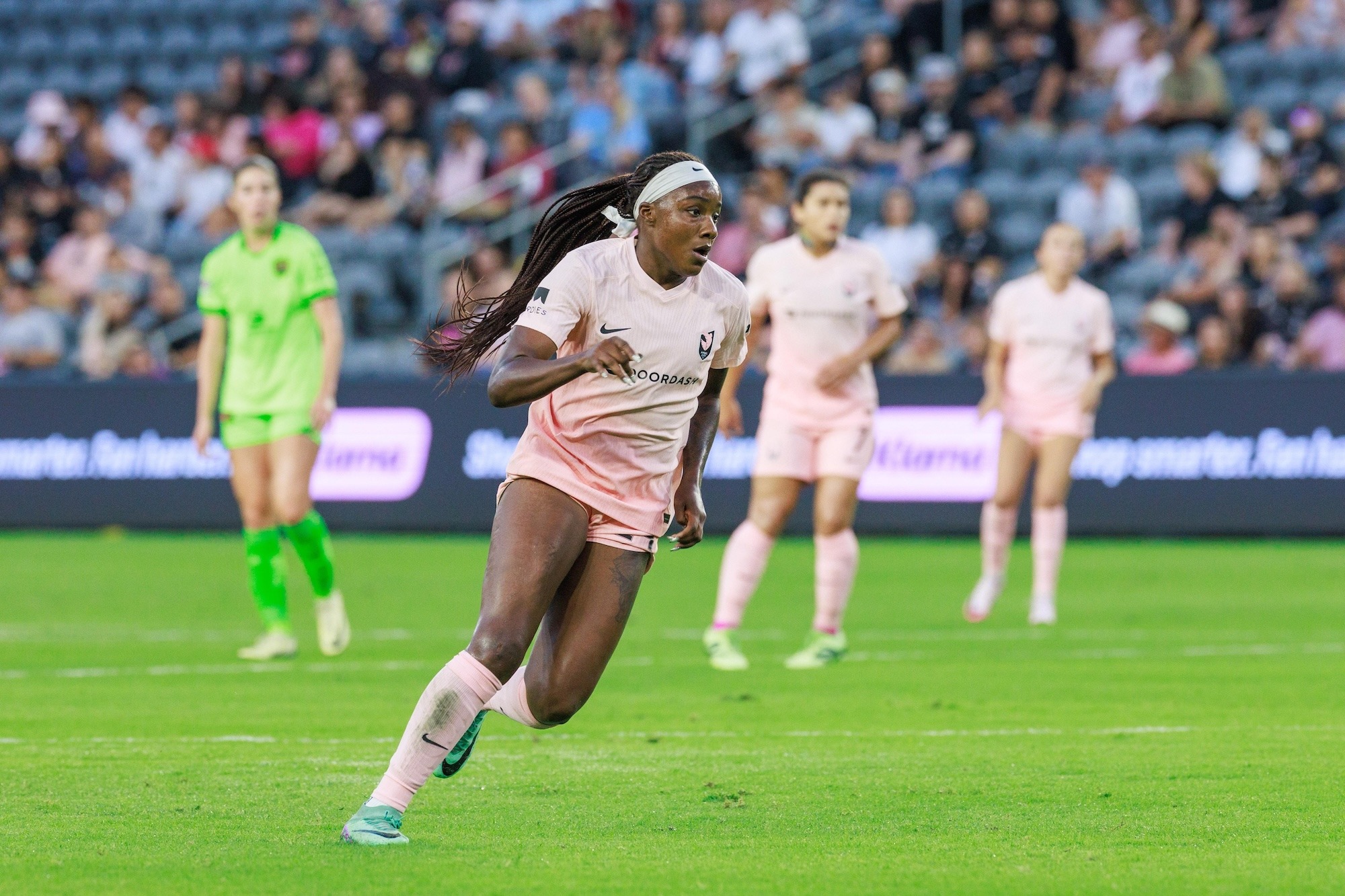

Welcome to The Breakdown, where Angel City players break down the basics of the game to help you understand what they do on the pitch. This week, we talked to forward Messiah Bright about strikers.
AngelCity.com: What type of forward do you consider yourself?
Messiah Bright: I consider myself a true [number] nine. So that's just a typical striker—someone who's good at playing back-to-goal, holding up the play, being dynamic in the play, and making runs in behind. Just trying to find different seams to connect with your teammates, to open up something for them.
ACFC: Let’s break that down a little. What does it mean to play back-to-goal?
MB: So say a teammate plays the ball in to you [near the goal]—sometimes you don't really have a direct [view of the goal]. Your back is literally to goal, and the defense is putting pressure on your back. In that situation, you can just hold up the play or maybe try to turn if you can. Typically I like to hold up the play and then either play it out to someone who's open and move to find another seam, or sometimes I try to turn in those moments. Basically, if you don't have a clear vision of the goal itself, it’s about being able to free up someone else to roam in that area.
ACFC: Have you always played as a forward?
MB: Growing up, at my first club team, I played right back, and then I moved to center back. Then my coach was like, “I could see her going up in the forward ranks.” When I moved to another club—which was Solar, which is where I kind of finished off everything—and I was in that [no.] nine role, and that's where I really got my rhythm in that striker role.
ACFC: What do you like about your position?
MB: Scoring goals, because they don't come so often. So when you do get that moment it's so exhilarating. I like being crafty, too; I feel I'm a dynamic player on the ball. So I like to do both—make runs in behind or keep the ball at my feet and do something with it. So I like being diverse in how I play.
ACFC: What qualities does someone need to succeed as a striker?
MB: Being in the right spots on the field. Scoring. Having the hunger to be within the frame of the goal. I think that's really the main thing coaches look for, is someone who wants to score.
ACFC: Every position comes with its own psychological challenges—could you talk about the psychological aspect of playing striker?
MB: The hardship is definitely when you don’t score. It just comes with it. But when you do score, you applaud everyone around you and you can pat yourself on the back for being able to do that for your teammates. But, you can't dwell oin the past if you miss one. You have to keep going and keep telling yourself, you'll get the next one, or the next one. So that's pretty much the mentality that I've been trying to keep, not trying to be so hard on myself, because it can get hard, but it's about how you capture those moments.
ACFC: You scored a hat trick against Juárez—your first as a professional, which were also your first goals for Angel City. Does that affect those psychological factors you just talked about?
MB: It's just a confidence booster. I've had moments in the NWSL where I've seen the ball go in and it didn't count. So I think just trusting myself, and I think showing that I can score helps keep that momentum going into the second half of the season. So definitely just a confidence booster—it's like, “okay, I'm ready. I'm back to where I need to be and who I know I can be.”




